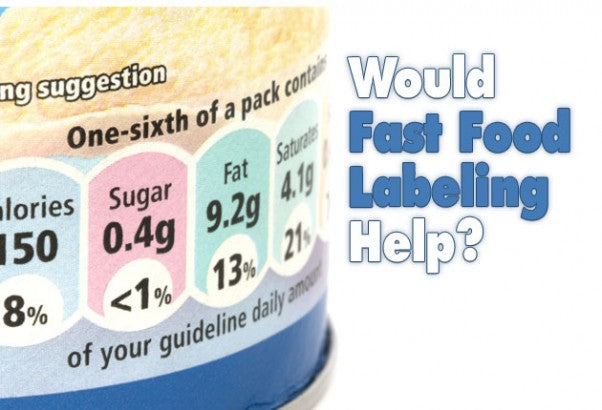Woo hoo! Australian officials are taking steps to do something that Hallelujah Acres has been suggesting here in America for nearly 20 years — big, bold calorie content labeling on fast foods.
In the words of New South Wales premier Barry O'Farrell, "It is my view that people who want to lose weight and get healthier need to take personal responsibility for their food and lifestyle choices."
Nicely done, Australia! We couldn't have said it better ourselves.
The new initiative requires "at a glance" calorie content labeling on everything from donuts and cream pies to pre-cooked supermarket chicken. It's part of the Australian government's "8700 kilojoule" campaign (8700 kilojoules = about 2,000 calories) to encourage better food choices.
If it makes people think twice about junk foods or otherwise high-calorie / low-nutrient foods, that's great. But being overly concerned with calorie counting is a misguided practice.
You can count calories all day long and still be unhealthy. The idea is to make better choices — if you can do that, calorie counting becomes irrelevant.
Take a plant-based diet, for example. You’ll feel full long before you consume too many calories because plant-based foods are naturally high in nutrients, low in calories, and have fiber to make you feel full — in other words, eating plant-based foods is self-limiting.
Here's an example... If you ate 2 apples (190 calories), 3 cups of boiled kale (84 calories), 1 cup of raw alfalfa sprouts (46 calories), and 2 ounces of walnuts (183 calories), you’d be stuffed full of food loaded with fiber and a wealth of easily digested, immune-boosting nutrients with only 503 calories to speak of — less than just one, medium-sized McCafe Mocha Frappe from McDonald’s (560 calories - www.calorieking.com)
It’s ironic. The unhealthiest foods with the most calories have the least amount of nutrition per calorie, leaving your body starved for nutrients even though you’ve consumed a lot of calories… which tells your brain to eat even more to fill the nutrient void — it’s the perfect recipe for obesity.
Obviously, a plant-based diet is the best solution to a nation's obesity problem.
However, for Australians still learning about diet and not ready to jump on the plant-based bandwagon yet, calorie labeling is definitely a step in the right direction.
Do you count calories? Why or why not? Comment below!






